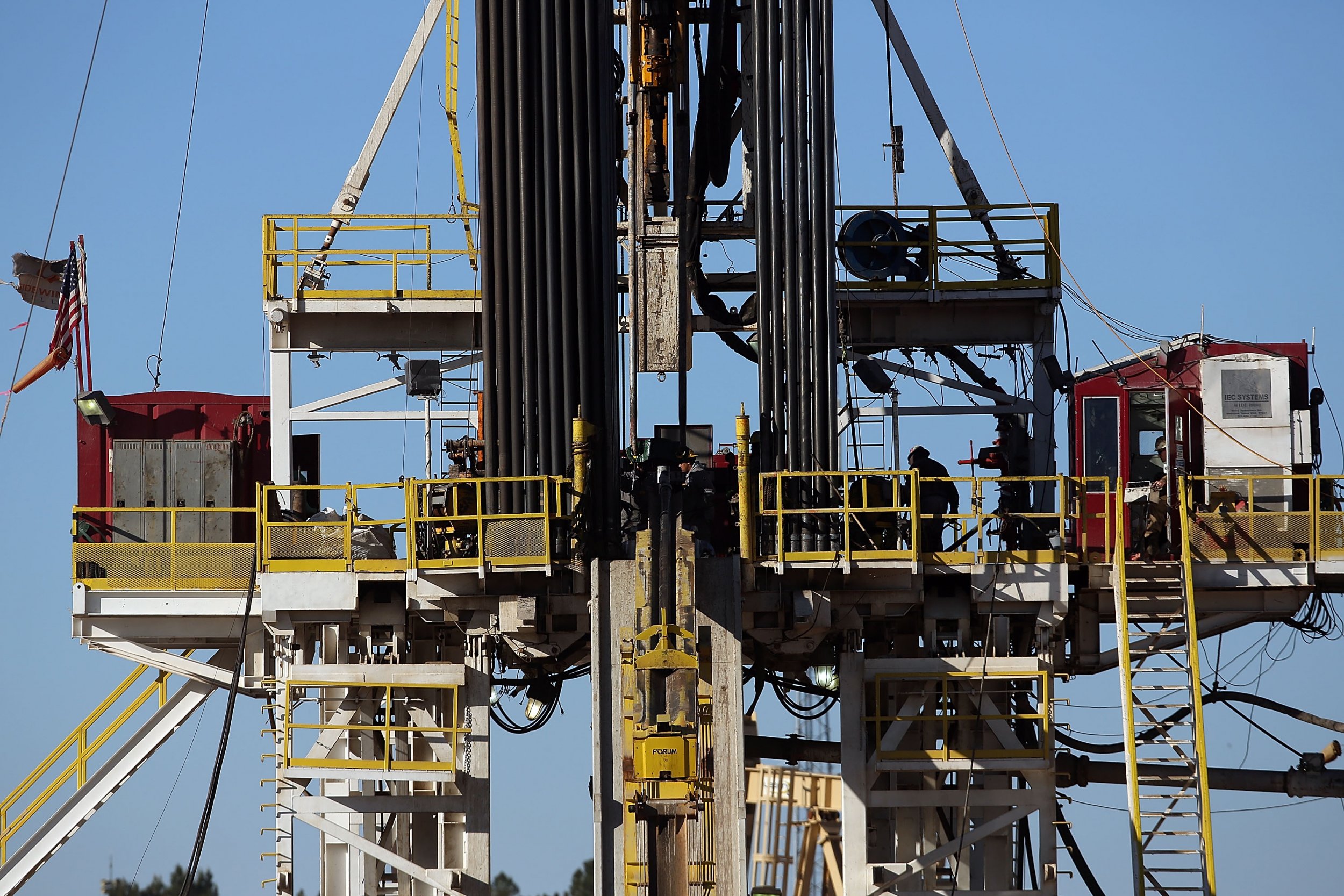
As an unnatural number of earthquakes hit Texas, researchers continue to wonder why. But, now a new study may have the answer.
The research—published in the journal Science Advances—says the oil and gas industry are to blame for the surge in seismic activity. In an attempt to understand whether the quakes are a result of human activity or natural origin, researchers analyzed fault history for two different areas in the United States: the Fort Worth Basin in Texas and the northern Mississippi embayment. Their findings revealed that the faults rarely move.
"There hasn't been activity along these faults for 300 million years," Beatrice Magnani, the study's lead author and a seismologist at Southern Methodist University, told Scientific American. "Geologically, we usually define these faults as dead."
Since there has been minimal movement, Magnani and her colleagues point to another cause: wastewater injection. In their paper, they argue that when the wastewater from extracting natural gas seeps down into the faults it can disrupt them, ultimately leading to an earthquake. However, there is no way to definitively know if drilling or nature causes the ground to rumble.
"It's been a head-scratching period for scientists," Magnani told The Washington Post.
Relying on what's called "seismic reflection data," the research team looked at photos that are created by sound waves deep underneath the Earth's surface. The authors believe their research is the only published study to examine earthquakes in such a way.
"To our knowledge, this is the first study to discriminate natural and induced seismicity using classical structural geology analysis techniques," they wrote in their paper.
Oklahoma has also seen an unnatural surge of recent earthquakes. The team hopes that their approach can be applied there too.
"We hope that the response from our colleagues will be to deploy this [technique] elsewhere," Michael Blanpied, co-author of the study and a U.S. Geological Survey geophysicist, told The Washington Post.
Other scientists have previously recognized that some earthquakes are caused by human activity, but they're few and far between, according to researchers at the University of Texas at Austin.
"In some parts of Texas the majority of earthquakes epicenters occur near active petroleum fields or injection wells," the University of Texas at Austin's website states. "Fortunately, the vast majority of petroleum fields and injection wells do not cause earthquakes, and the majority of human-caused earthquakes are small and harmless."
Uncommon Knowledge
Newsweek is committed to challenging conventional wisdom and finding connections in the search for common ground.
Newsweek is committed to challenging conventional wisdom and finding connections in the search for common ground.
About the writer
To read how Newsweek uses AI as a newsroom tool, Click here.








